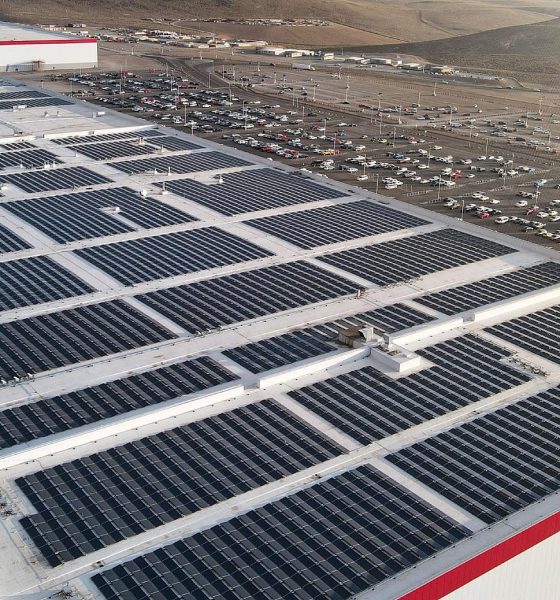Tesla Energy Division Gains Momentum Amid Global Shift
Tesla's energy division is gaining momentum, focusing on solar and storage solutions, poised to become a significant growth driver amid global renewable shifts.

Tesla’s Energy Business: The Underrated Growth Engine Beyond AI
Tesla, Inc., widely recognized for its electric vehicles (EVs) and advancements in artificial intelligence (AI), has another crucial and underrated business segment gaining momentum: its energy division. Despite the media focus on Tesla’s AI initiatives such as the Full Self-Driving (FSD) software and Dojo supercomputer, Tesla’s energy business is quietly evolving into a significant growth driver deserving more attention from investors, analysts, and industry watchers alike.
The Underrated Tesla Business: Energy Generation and Storage
Tesla’s energy business primarily revolves around solar energy products and battery storage solutions. These include:
- Solar panels and Solar Roof tiles: Designed for residential and commercial installations.
- Energy storage systems: Notably the Powerwall, Powerpack, and Megapack batteries which store electricity for homes, businesses, and utilities.
- Energy services: Including software solutions to optimize energy usage and grid management.
Tesla Energy aims to accelerate the world’s transition to sustainable energy by integrating solar generation with energy storage, enabling customers to generate, store, and manage their own power efficiently.
Why Tesla’s Energy Business Deserves More Focus
-
Growth Potential Amid Global Energy Transition
The global shift toward renewable energy is accelerating, driven by climate policies and rising energy costs. According to the International Energy Agency (IEA), solar power is expected to lead new renewable capacity additions in the coming decade, with energy storage playing a pivotal role in grid stability and renewable integration.
Tesla Energy is well-positioned to capitalize on this trend. In Q2 2025, Tesla reported record energy storage deployments, growing over 70% year-over-year. This growth outpaces many competitors, showcasing Tesla’s technological edge and expanding market reach.
-
Scalable and Diverse Product Portfolio
Tesla’s energy products serve a broad customer base:
- Residential customers use Powerwalls coupled with solar panels or Solar Roofs to reduce electricity bills and ensure backup power.
- Commercial and industrial clients deploy Powerpacks for peak shaving, demand charge management, and resilience.
- Utility-scale projects benefit from Megapacks that provide grid-scale storage to balance supply and demand, helping stabilize regional electricity grids.
This diversification reduces dependency on the volatile automotive segment and creates multiple revenue streams.
-
Innovative Integration of Hardware and Software
Tesla’s competitive advantage lies in vertically integrating hardware (solar panels, batteries) with advanced software platforms like Autobidder. Autobidder enables real-time energy trading and optimizes energy storage assets’ profitability in wholesale markets. This software-driven approach enhances the value proposition for customers and utilities.
-
Strong Backing by Tesla’s Brand and Manufacturing
Tesla leverages its brand reputation for innovation and sustainability to gain trust in the energy market. Additionally, Tesla’s Gigafactory facilities — designed to scale battery production — support cost reductions and supply chain resilience critical for energy storage growth.
Recent Developments and Strategic Moves
- Solar Roof Expansion: Tesla continues to improve Solar Roof production capacity and installation efficiency, addressing earlier concerns about cost and deployment speed.
- Megapack Projects: Tesla signed multi-hundred megawatt-hour deals globally, including in California, Australia, and Europe, helping utilities manage renewable intermittency.
- Energy Software Growth: Tesla’s software revenue from energy management is increasing, signaling future recurring revenue potential beyond hardware sales.
Industry Impact and Competitive Landscape
Tesla Energy is not without competition. Companies like Enphase, Sunrun, LG Chem, and Fluence compete in solar and storage markets. However, Tesla’s integrated ecosystem and scale provide a strong moat.
Industry analysts suggest that Tesla’s energy business could contribute up to 20-30% of the company’s total revenue within the next five years as renewable adoption and storage demand surge.
Context and Implications
Tesla’s energy business embodies the company’s broader mission to accelerate sustainable energy adoption beyond just electric vehicles. While AI and automotive technology receive the lion’s share of headlines, energy storage and solar represent a durable, high-growth segment with substantial societal impact.
Investors should watch Tesla’s energy division closely for signs of accelerating revenue growth, margin improvement, and strategic partnerships. Success here could diversify Tesla’s revenue base and reduce dependence on cyclical automotive markets.
Conclusion
Tesla’s underrated energy business is emerging as a critical pillar of its long-term growth strategy. With record deployments, innovative products, and global market opportunities, Tesla Energy is poised to become a dominant force in the clean energy revolution. As the world intensifies efforts to combat climate change, Tesla’s integrated solar and storage solutions offer scalable, sustainable alternatives to traditional energy systems—making this business segment one of the most promising yet underappreciated aspects of Tesla’s future.



